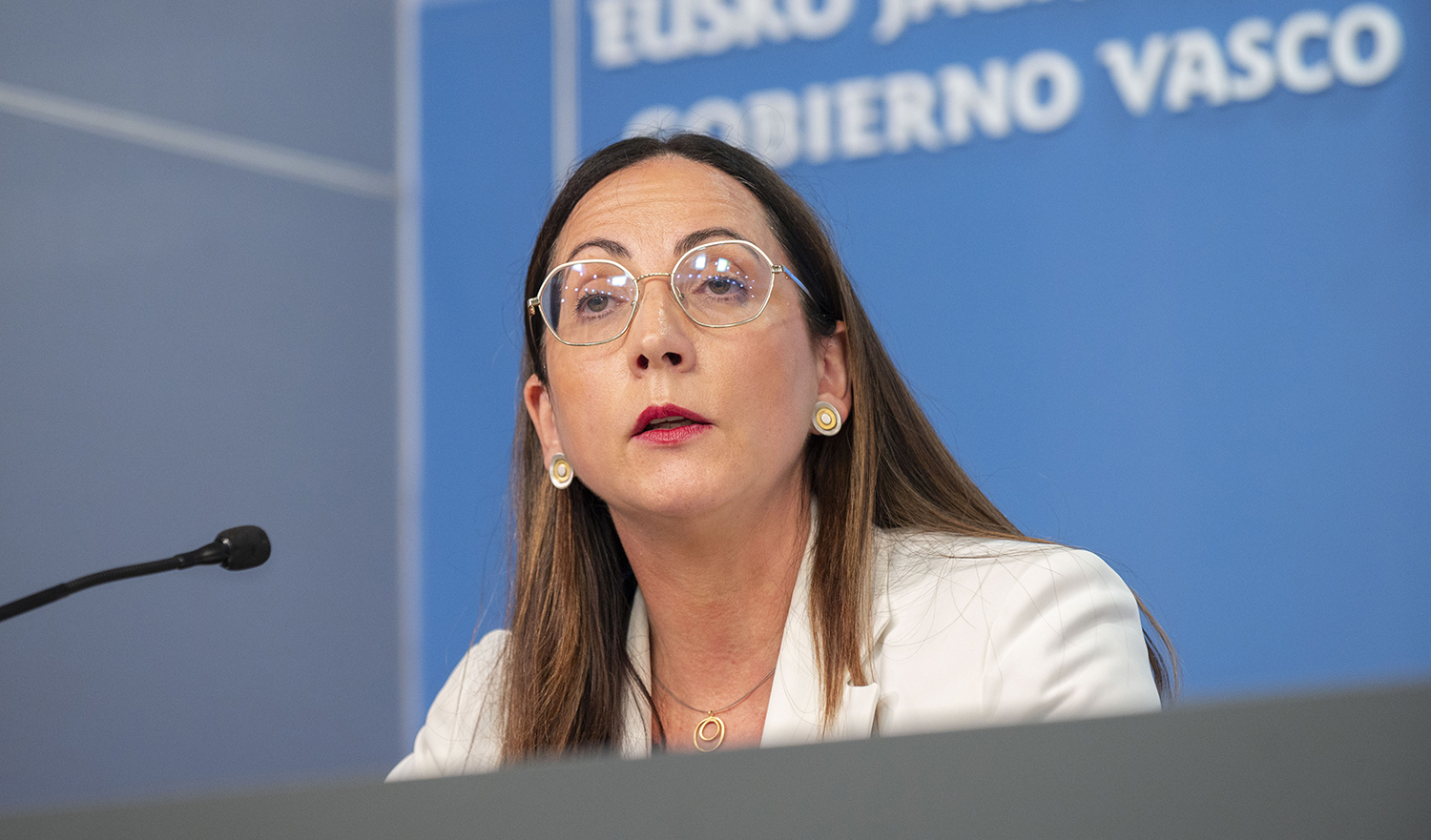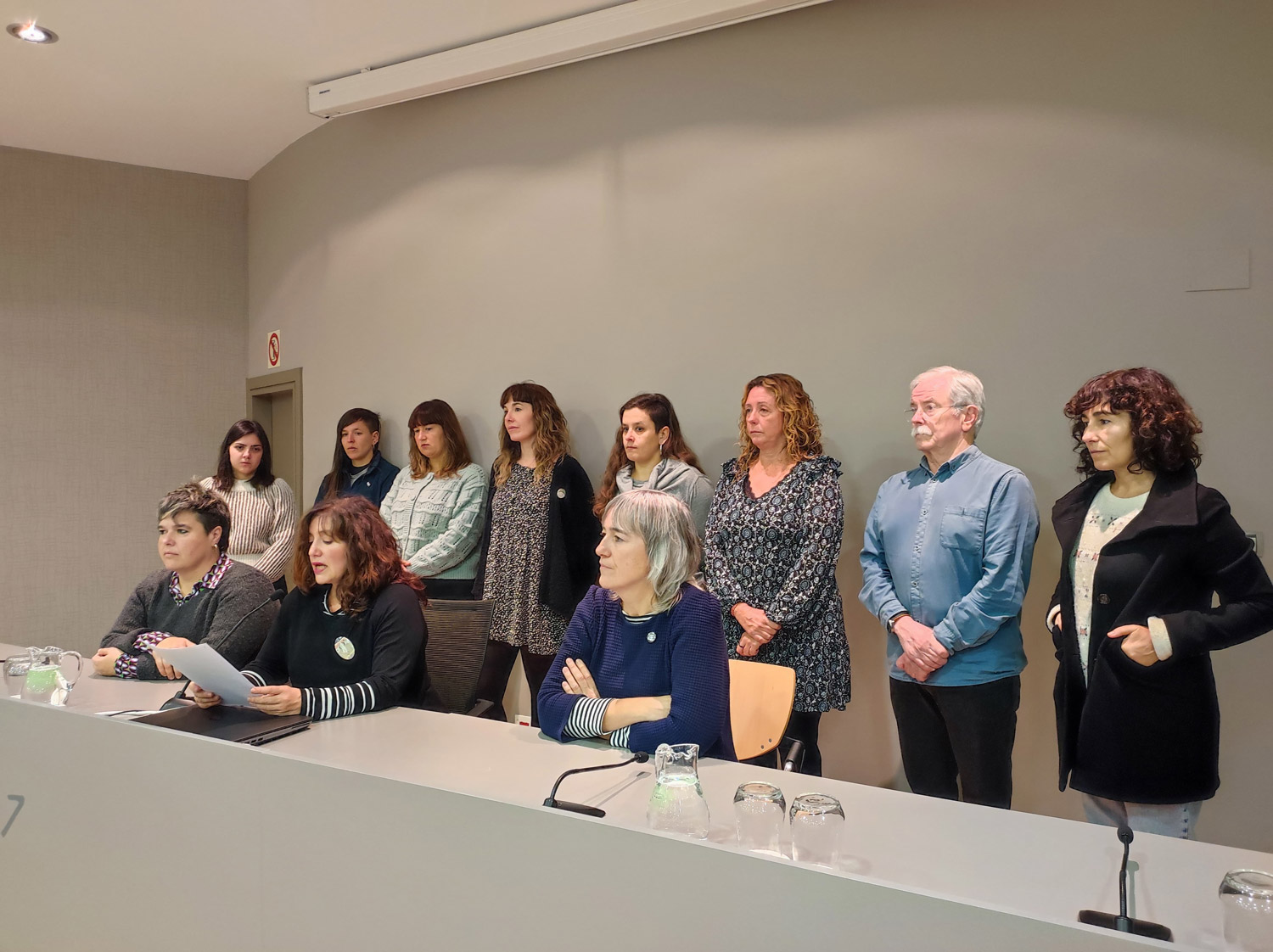The Council calls on political parties to make the Education Act "the guarantee and the key" to uskaldunify the future
- At the press conference on Friday, some of the 30 members of the Council of Euskalgintza have been present; Kontseilua; Ikastolen Elkartea; HEIZE and Hik Hasi; the majority of the education union -ELA, LAB and STEILAS -; and the representatives of Elkar, AEK, Berkria and Euskaz. Although unable to attend, EHIGE, Euskaltzaleen Topagunea, Artez Euskara Zerbitzua and IKA joined the hearing.

In San Sebastian (Gipuzkoa) last Friday, one of the most important agents of the Basque sector and the educational community appeared to make a joint reading of the new CAPV Education Act in view of the risk of maintaining linguistic models. They call on political parties to leave behind the linguistic models of the past and withdraw the future: “Providing the Education Law with the contents and specifications necessary to make it a guarantee and a key to the Euskaldunization of future generations, putting at the centre the generalized teaching model centered on the Basque and the Basque curriculum”.
The process of drafting the new Education Act in Álava, Bizkaia and Gipuzkoa has been underway for two and a half years, reaching the final round. Council members have considered this "critical moment". He said at his parliamentary hearing last June: That the new Education Law needs “precision” to be an “instrument of normalization and social cohesion of the Basque Country”. However, the political parties have underlined that some of the amendments presented below are precisely the opposite. They are deeply concerned about the setback.
They say that maintaining models will mean leaving “thousands of students without euskaldunizar” in future generations. Impairing the normalization of Euskera and hindering social cohesion and coexistence. They note that the language model system created 40 years ago is “deeply discriminatory”.
At the “critical time” of the debate, the Council and the other actors have called on political parties to “act responsibly”, providing guarantees to adequately address the challenges facing the future of the Basque Country and the Basque Country.
The look of the future
The Council proposes a “long-term view” so that in a few decades the Basque society will be Basque and multilingual, that is, so that the new generations will dominate the two official languages and at least one foreign language. To do so, they assure that “pedagogical innovation”, “transmission of Basque culture”, “euskaldunizar non-regulated education and the school environment” and “direct more resources to those who least Euskera have” will be necessary.
However, they know that this is not something that can be executed overnight, but a process that will require a “time for transition”. They stress that this is a commitment to deepen the cohesion and equality of Basque society.
Why concerted teaching?
The new Education Act adopted by the CAV against most public school officials aims to ensure that concerted education is free of charge through the financing of public authorities. The Spanish State has also announced a significant increase in public... [+]
Hunters, Marianistas, Niño Jesús, CEU San Pablo - Virgen Niña, Carmelitas, Presentation of Mary, Vera Cruz, NClic, San Viator, Escorapias, Scholapios, Bárdarias, Nazareth, Immaculate Conception, Hogar San José, Egibide. More Olabide by Eusko Ikastolen Batza. Finally, the... [+]
In response to the numerous statements of the new Education Advisor, Begoña Pedrosa, Law 17/2023 on Education will be implemented at the beginning of the course, approved in Parliament with the sole support of the PNV and the PSE. This implementation will entail the application... [+]
Who orders us ...?
The Basque Government has just been set up and the Minister for Education will be Begoña Pedrosa. Being a vice-counselor in the previous legislature and being one of the founders of the new Education Law passed last December, we are allowed to ask some... [+]
The recently passed Education Act is as bad as it is new. Throughout the processing process there has been a broad social sector against the spirit of this law, and this opposition has been greater in the face of its adoption. We want to make public the assessment and reflection... [+]
The new Education Act, which had to be born of consensus, was adopted in anger and disagreement. The lack of agreement is due to the public-private question and linguistic models. A lot of pity.
In this we follow the Spanish model, because in the CAPV we are not able to lay... [+]
Those of us who write and sign these lines are young people between 20 and 26 years old who have joined us in the context of the generational relay of Euskalgintza. In our case, we have decided to contribute to the struggle of the Basque Country in the Basque Country from... [+]
















